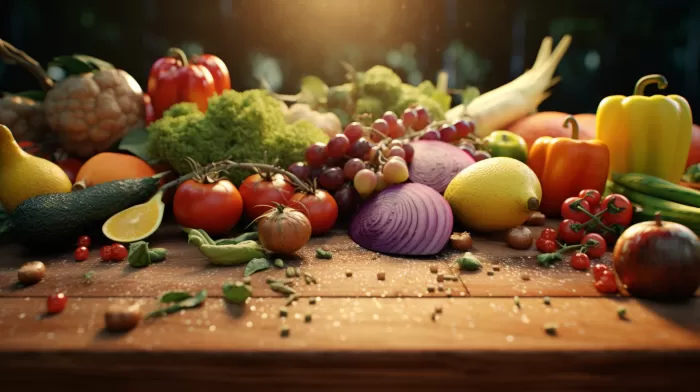Phytonutrients are natural compounds found in plant foods, and they can have an incredible impact on your heart health. In this article, we’ll be breaking down exactly why these phytonutrients are so important, and which foods you should focus on consuming to ensure you’re getting the most cardiovascular benefits.
It’s important to note that there are over 5,000 types of phytonutrients, and it’s essential to consume a diverse array of them for maximum health benefits. Let’s dive into some of the key phytonutrients your heart will thank you for:
Polyphenolics
Polyphenolics are found in foods like marionberries and olives, and have been proven to reduce heart disease risk. Some phenols, like those found in rosemary and sage, have powerful anti-inflammatory properties, helping to further protect your cardiovascular health.
Lycopene
Lycopene can be found in tomatoes and tomato-based products like juice, sauce, soup, and paste. This phytonutrient has been linked to a reduced risk of heart attacks and various types of cancer, including prostate, breast, and skin cancers.
Anthocyanins
Raspberries, cherries, strawberries, cranberries, beets, and red apples (with skin) are all excellent sources of anthocyanins. These compounds have been shown to reduce the risk of heart attacks, high blood pressure, diabetes complications, Alzheimer’s disease, and cancer.
Astaxanthins
Found in microalgae, yeast, salmon, trout, and shellfish, astaxanthins have been proven to promote coronary artery vasodilatation, lowering blood pressure in the process.
Beta-carotene
Rich sources of beta-carotene include papaya, carrots, kale, spinach, tomatoes, sweet potatoes, butternut squash, cantaloupe, mangos, apricots, and peaches. Beta-carotene has been proven to reduce the risk of heart attack and cancer, improving immune system functions and vision.
Bioflavonoids
Foods like oranges, grapefruits, lemons, tangerines, peaches, papayas, apricots, nectarines, pears, pineapples, yellow raisins, and yellow peppers all contain bioflavonoids. These compounds are known to reduce the risk of heart attacks and cancer, while also maintaining strong bones, teeth, healthy skin, and good vision.
Lutein and Zeaxanthin
Leafy greens, broccoli, green peas, kiwis, and melons all contain lutein and zeaxanthin. These nutrients have been shown to lower the risk of cardiovascular disease and help maintain healthy vision while reducing the risk of cataracts and macular degeneration.
Indoles
You can find indoles in kale, broccoli, cabbage, Brussels sprouts, bok choy, Swiss chard, turnips, rutabaga, watercress, and cauliflower. These compounds have been shown to reduce the risk of breast and prostate cancer.
Chlorophyll
Green vegetables are an excellent source of chlorophyll, a potent antioxidant that provides incredible health benefits.
Phytosterols
Phytosterols are found in vegetable oils, nuts, legumes, whole grains, and nuts. These compounds have been shown to be anti-inflammatory, reduce prostate cancer risk, and improve cholesterol levels, furthering heart health.
The phytochemical index measures the total phytonutrient content of a given whole food. Consuming foods with higher phytochemical index scores has been linked to lower inflammation levels and lower obesity rates.
Researchers also note that consuming a diverse array of phytochemicals is crucial for reducing chronic disease risk. In conclusion, to boost your cardiovascular health, make sure your diet includes a wide variety of plant-based foods that are rich in these essential phytonutrients.



